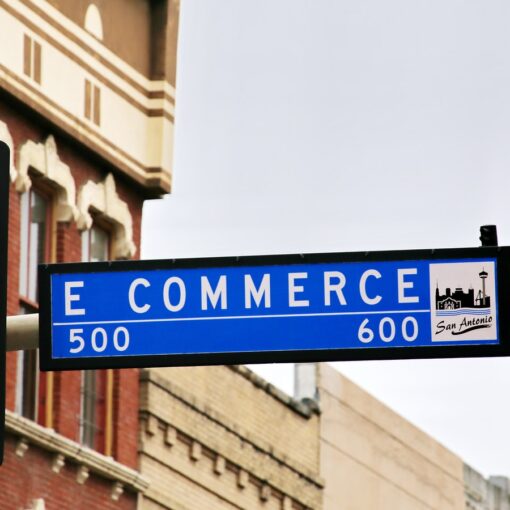Key Concepts and Takeaways
– Understand that e-business encompasses all online business activities.
– Recognize that e-commerce specifically refers to buying and selling goods online.
– Identify the broader scope of e-business, including services like marketing and customer support.
– Differentiate between B2B and B2C models in e-commerce transactions.
– Invest in a robust digital infrastructure for effective e-business operations.
– Prioritize cybersecurity measures to protect sensitive information.
– Utilize data analytics to enhance customer experience and sales strategies.
– Explore various payment options to cater to diverse customer preferences.
– Stay updated on regulatory requirements affecting e-commerce businesses.
– Develop a clear strategy that aligns your e-business goals with market needs.
 E-commerce, or electronic commerce, is the trading of goods and services online. The primary goal of e-commerce is to provide a platform for customers to buy products from an online store. E-business, on the other hand, is the art of using technology to create a competitive advantage in business. Unlike e-commerce, one can have an e-business without being online.
E-commerce, or electronic commerce, is the trading of goods and services online. The primary goal of e-commerce is to provide a platform for customers to buy products from an online store. E-business, on the other hand, is the art of using technology to create a competitive advantage in business. Unlike e-commerce, one can have an e-business without being online.
With the emergence of online business, many misconceptions have arisen. One such misconception is that the terms “e-business” and “e-commerce” are interchangeable. They are not. The terms refer to two different aspects of online business, which have seen a large increase in popularity over the past two decades.
E-commerce refers to selling goods or services online through a website or mobile application.
E-Business is the act of running a business on the internet, whereas e-commerce is the buying and selling of goods or services. While both are related, they are not interchangeable terms. E-business is a process that a business may use to reach a larger customer base or increase productivity. However, e-commerce requires an ability to sell products and services online.
Despite the fact that it seems to be a new phrase, the term “e-business” was first coined in 1997, making it far from a youngster. However, given the fact that it depicts an altogether new manner of doing business, it is reasonable to assume that it is still in its early phases of implementation and implementation. The phrase will be defined in a different manner, shape, or form on every page you turn in this book. Possibly because it encompasses such a broad range of procedures, ranging from sending out a newsletter to selling an Audi over the internet, the term has gained popularity. So, what precisely is e-business, and what does it imply for the future of a company owner, is a question worth asking.
Contents of This Page
E-Business as a Concept
The term “e-business” refers to the use of information technology in a business’s everyday operations. There are many benefits from this, such as lower costs and increased efficiency, but there are also some disadvantages to consider.
A company may decide to get into e-business for a number of reasons. It can be cheaper because it may not involve the transportation of goods, and the ability to update inventory is quicker and more efficient.
E-business is becoming an ever more lucrative concept in the current business world. Some of the most popular products and services offered online are customer service, retail products, and software.
E-Business as a concept is a new way of doing business that has been developing since the commercialization of the Internet began in the early 1990s. E-business is not a recent invention, but it has become an era with its own set of rules and regulations. The online world is challenging how traditional businesses operate, and new technologies are allowing them to take advantage of this change.
According to the United States Census Bureau, e-business is defined as “Any commercial operation that is carried out by a company via the use of a computer-mediated network. Business organizations may be any for-profit, government-sponsored, or non-profit organization. Their business processes are divided into three categories: production, customer service, and internal or management procedures.” E-business, in its simplest and most general definition, is the process of doing business electronically or through the internet. Electronic mail is simply referred to as e-mail, electronic commerce is simply referred to as e-commerce, and following this formula, electronic business is simply referred to as e-business. Every time a commercial transaction takes place via the internet, it is referred to as e-business, and as the internet increases, so does e-business.
The Location of E-Commerce Operations
E-business is available to all users via the internet, to internal users via an intranet (which, like the internet, is a smaller network of computers usually within a single organization), and to specific users via an extranet. E-business is available to all users via the internet, to internal users via an intranet, and to specific users via an extranet (an intranet partially accessible to specified users from outside an organization via a valid username and password).
There are three major types of e-business.
1. Business-to-consumer marketing (B2C)
B2C e-business is the most well known kind of e-business and refers to the exchange of information, goods, or services that takes place between a company and a customer through the internet. Because of the advancement of the internet, B2C is constantly altering the way customers get information, the way items are compared to one another and the way they make purchases.
Amazon.com is an example of a business-to-consumer website. Ae.com is an example of a business-to-consumer website that also has a physical presence.
2. Business-to-Business transactions (B2B)
B2B e-commerce is the most profitable kind of e-commerce in terms of money spent. Business-to-business trade provides for the exchange of products and services between companies by using a low-cost sales channel for the distribution of goods and services. It is also responsible for the continual shift in corporate purchasing patterns.
An example of a B2B site would be a vehicle component firm that sells parts to a car dealership, rather than directly to customers, on their website.
3. Business to Government Relationships (B2G)
In the context of e-government, business-to-government (B2G) refers to the online exchange of information and transactions between companies and government organizations. B2G enables government agencies and enterprises to do business and engage with one another via the internet by using electronic methods to conduct business and interact.
A B2G website that provides electronic tax filing would be an example of this kind of site.
The Relationship Between E-Commerce and E-Business
E-commerce, according to the United States Census Bureau, is defined as “Transactions involving the transfer of ownership or the right to use goods and services that take place through a computer-mediated network are known as cybertransactions. Transactions take place inside certain e-business processes (for example, the selling process) and are deemed ‘finished’ when an agreement is made between the buyer and seller to transfer ownership or the right to use products or services, respectively.” As a result, whereas e-business encompasses the complete spectrum of online business transactions (from customer service to sales), e-commerce refers to the act of one entity making a payment to another entity via the internet in exchange for products or services. Consider the following: E-commerce may refer to any sort of e-business that involves the transfer of products or services, including but not limited to business-to-consumer, business-to-business and business-to-government (B2G).

Kevin Collier is a seasoned writer and technology enthusiast with a passion for exploring the latest industry trends. With a background in digital marketing and content creation, he brings insightful perspectives to imhits.com on emerging technologies, innovations, and their impact on everyday life. When he’s not writing, Kevin enjoys experimenting with new gadgets and sharing his knowledge with fellow tech aficionados.





